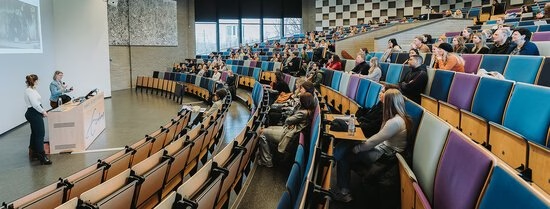With a history of 110 years, Erasmus School of Economics stands for groundbreaking research and excellence in education and is a worldwide leading academic brand in economics and econometrics.
Its strong international focus is reflected in our academic staff and student population. Students and staff members come from all over the world. We stimulate them to be citizens of the world, in a geographical, intellectual, and social way. This means stepping beyond the borders of cities and nations, cultural background, gender and religion, altogether with a willingness to act upon the values of a compass that rules out bias and prejudice.
